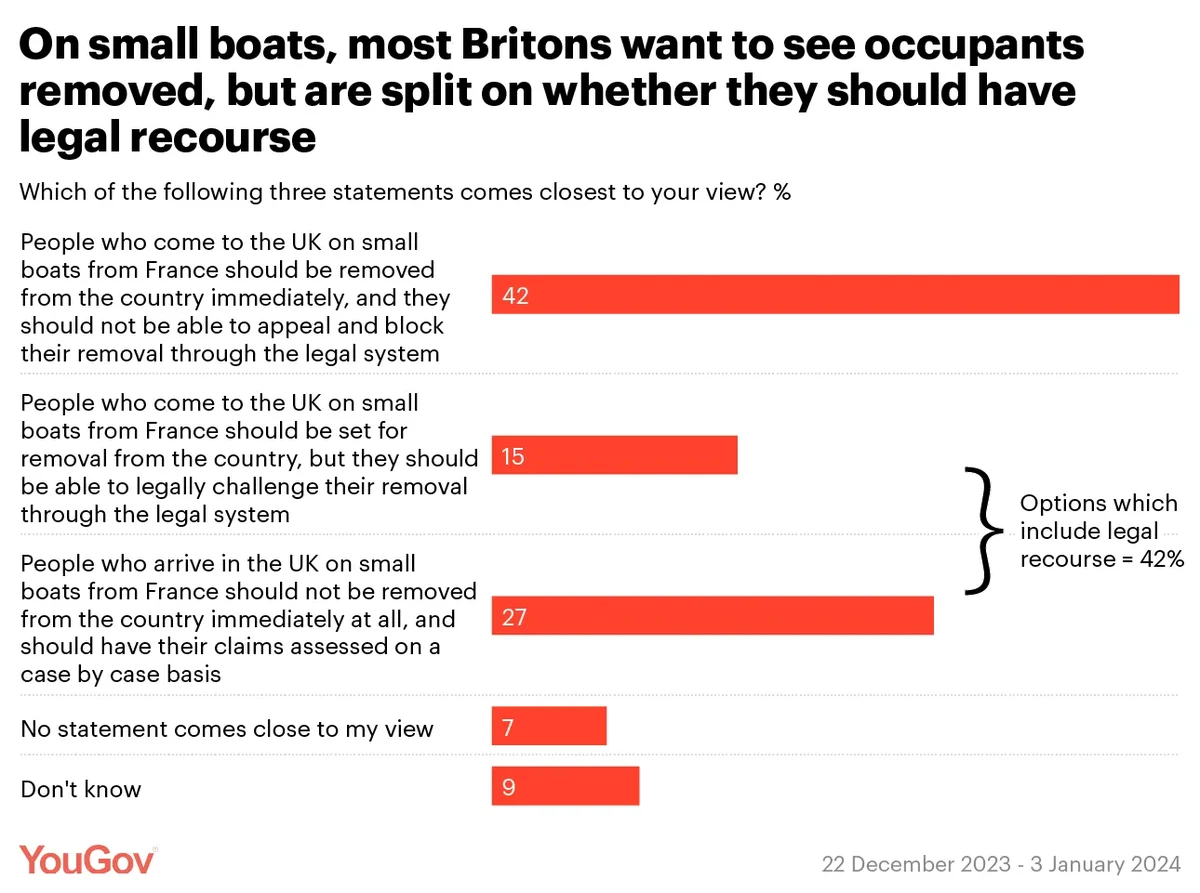Deporting such migrants without giving them a chance to appeal is the plurality preference in most constituencies
New YouGov MRP research commissioned by the Conservative Britain Alliance, with David Frost named as the contact, on attitudes to small boats crossing the Channel was published by the Telegraph today.
This model was run as part of the same project which projected a 120-seat majority for Keir Starmer’s party if a general election were being held tomorrow.
MRP models work by estimating relationships between people’s backgrounds (and location) and their answers to survey questions, and using this information to project how different kinds of areas think and feel about various topics. As well as vote intention, it is perfectly possible to project the results to other survey questions down to smaller geographies (including of course, parliamentary constituencies).
In this case, we asked respondents the following question: Which of the following three statements comes closest to your view?
- People who come to the UK on small boats from France should be removed from the country immediately, and they should not be able to appeal and block their removal through the legal system,
- People who come to the UK on small boats from France should be set for removal from the country, but they should be able to legally challenge their removal through the legal system, or
- People who arrive in the UK on small boats from France should not be removed from the country immediately at all, and should have their claims assessed on a case by case basis.
Respondents could also tell us that ‘no position’ represented their view, or that they didn’t know.

Taken together, the responses provided for one option which represented the toughest policy and no legal routes to challenge deportation, and two options where some sort of legal process was built into the policy. It is important when disseminating and reading the results to look both at support for the individual positions and support for the ‘no legal process’ versus ‘legal process’ binaries.
When projected to the constituency level in England and Wales (Scotland was not projected in the MRP, but is included in the headline figures above), we found that ‘removal without appeal’ was the most individual popular position across 516 out of 575 constituencies. The remaining 59 were most likely to support the most liberal position – assessing all claims of those arriving to the country on ‘small boats’.
When the ‘legal process’ options are combined, we see that the most restrictive ‘no appeal’ option remains well out in front in regards topping constituency-level opinions, being the most popular option in 392 constituencies versus 183 where a ‘legal process’ option was most popular.
It is, however, also important to distinguish between being the plurality choice in the majority of parliamentary constituencies, and the ‘majority of the public’ (or indeed a ‘majority of constituencies’) supporting a particular view.
The headline results from the poll are clear – the public are split on this particular issue, and very divided on whether they want to allow ‘small boats’ arrivals to have access to a legal process regarding their right to remain in the United Kingdom or not. There is no majority public support for any proposal in this matter.
To illustrate this point, ‘removal with no appeal’ only attracts majority public support in 111 constituencies. Supporting a ‘legal process’ option is the majority view in just 57.










